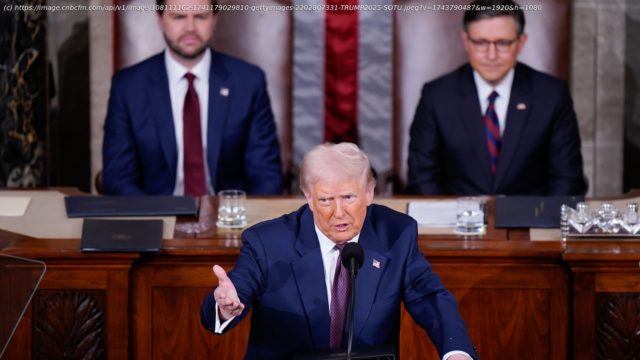Stock market indices have sharply fallen on the heels of President Trump imposing higher tariffs on more than 180 countries.
President Donald Trump is on a tariff spree — and it’s unclear if Congress will try to stop him even as it has the potential power to do so.
Trump unveiled a nearly global tariff regime on Wednesday, slapping a blanket 10% duty on almost every country on the planet and saddling dozens of them with significantly higher tariff rates.
The sweeping policy pronouncement promptly torpedoed stocks in the U.S. and around the world, ratcheting up recession fears and triggering aggressive retaliation by China.
The new U.S. import duties follow other protectionist policies that Trump, who champions tariffs as an economic cure-all, has rolled out since taking office in January.
Trump’s executive order implementing his so-called reciprocal tariffs says that he derives his authority for the action from four sources in the United States Code.
Among them are the International Emergency Economic Powers Act and the National Emergency Act.
A president using those laws in tandem can declare an emergency and then impose related tariffs.
Wednesday’s order declared a national emergency in response to what it called an « unusual and extraordinary threat » to America’s economy and security.
That threat is based on « the domestic economic policies of key trading partners and structural imbalances in the global trading system », the order says.
Trump is the first president to use the IEEPA to impose tariffs, according to the Congressional Research Service.
He first invoked the law in February when he announced new tariffs on Canada, Mexico, and China.
Under the U.S. Constitution, the power to tax and tariff falls squarely within the legislative branch.
Article 1, Section 8 of the Constitution states, « The Congress shall have Power To lay and collect Taxes, Duties, Imposts and Excises », as well as, « To regulate Commerce with foreign Nations.
Home
United States
USA — Financial Congress has power over tariffs, but stopping Trump isn't likely as of...






